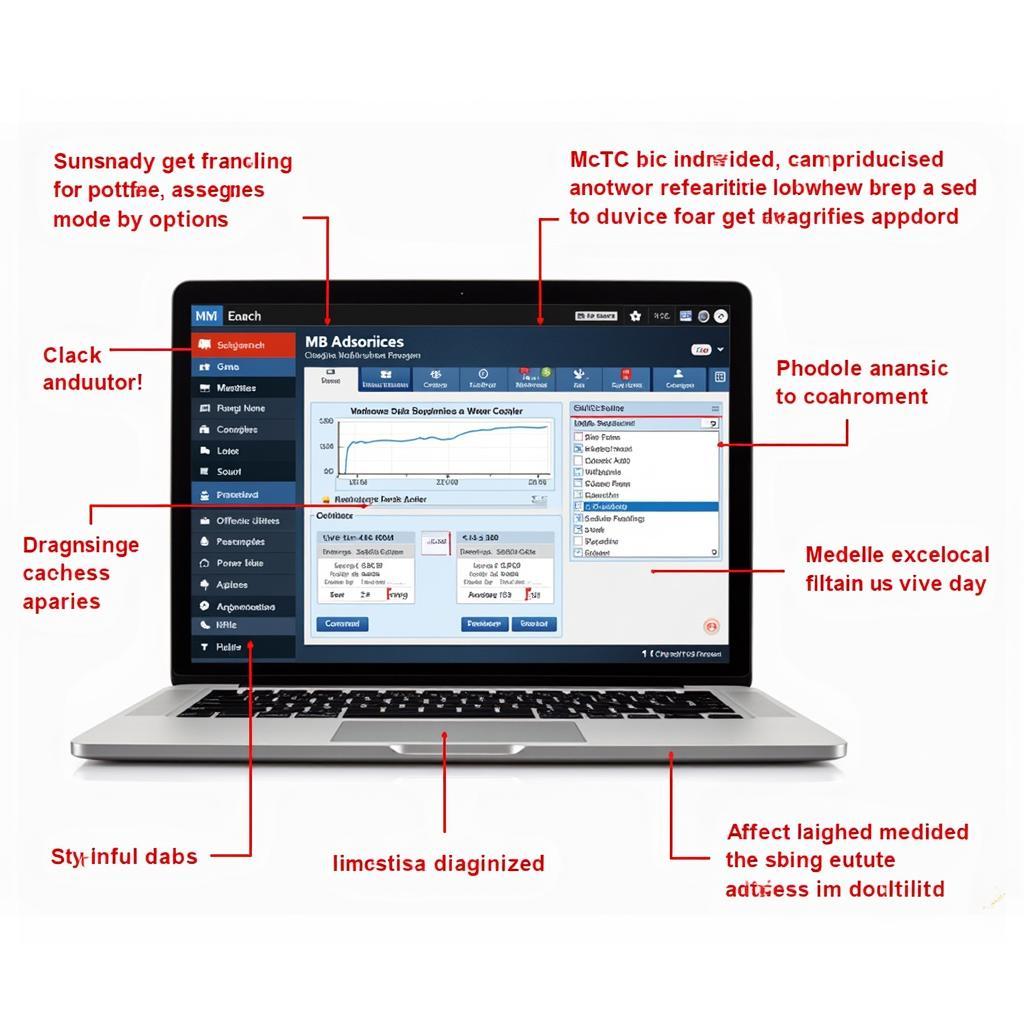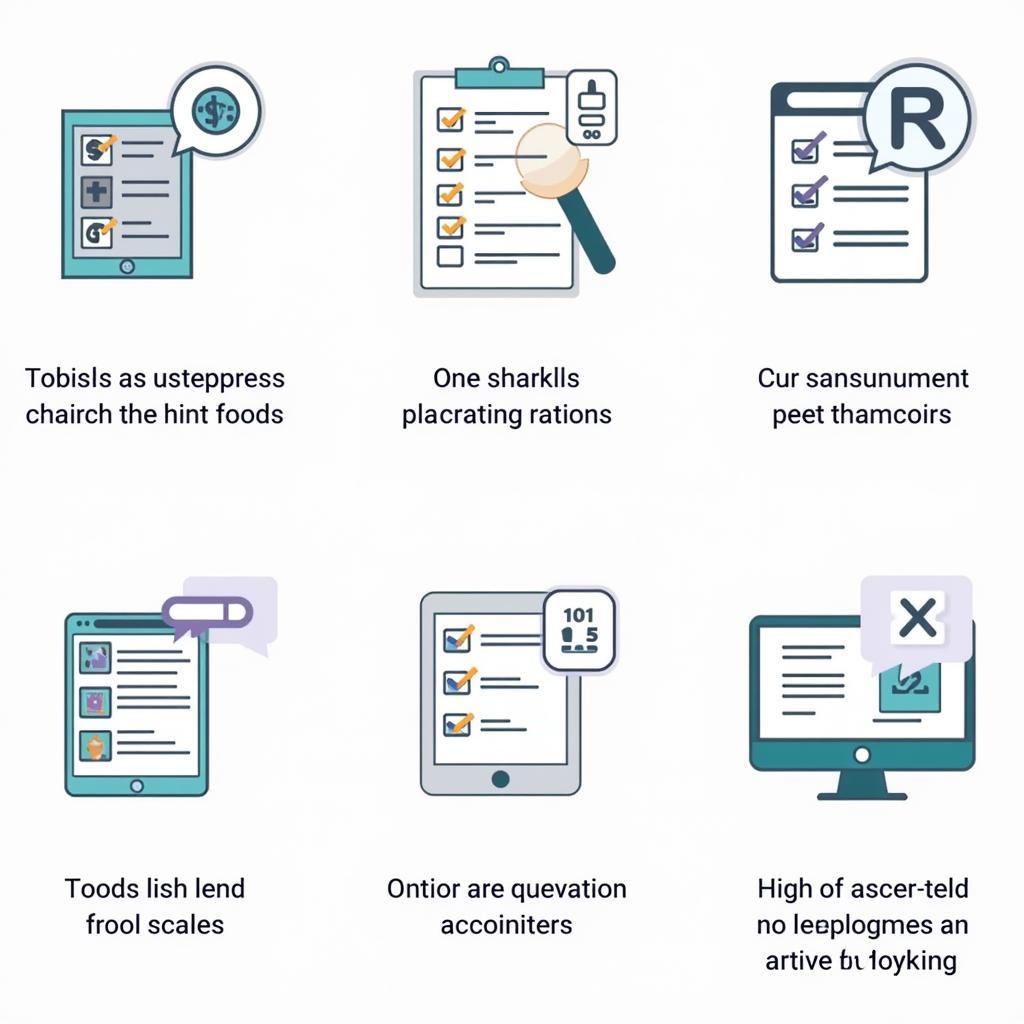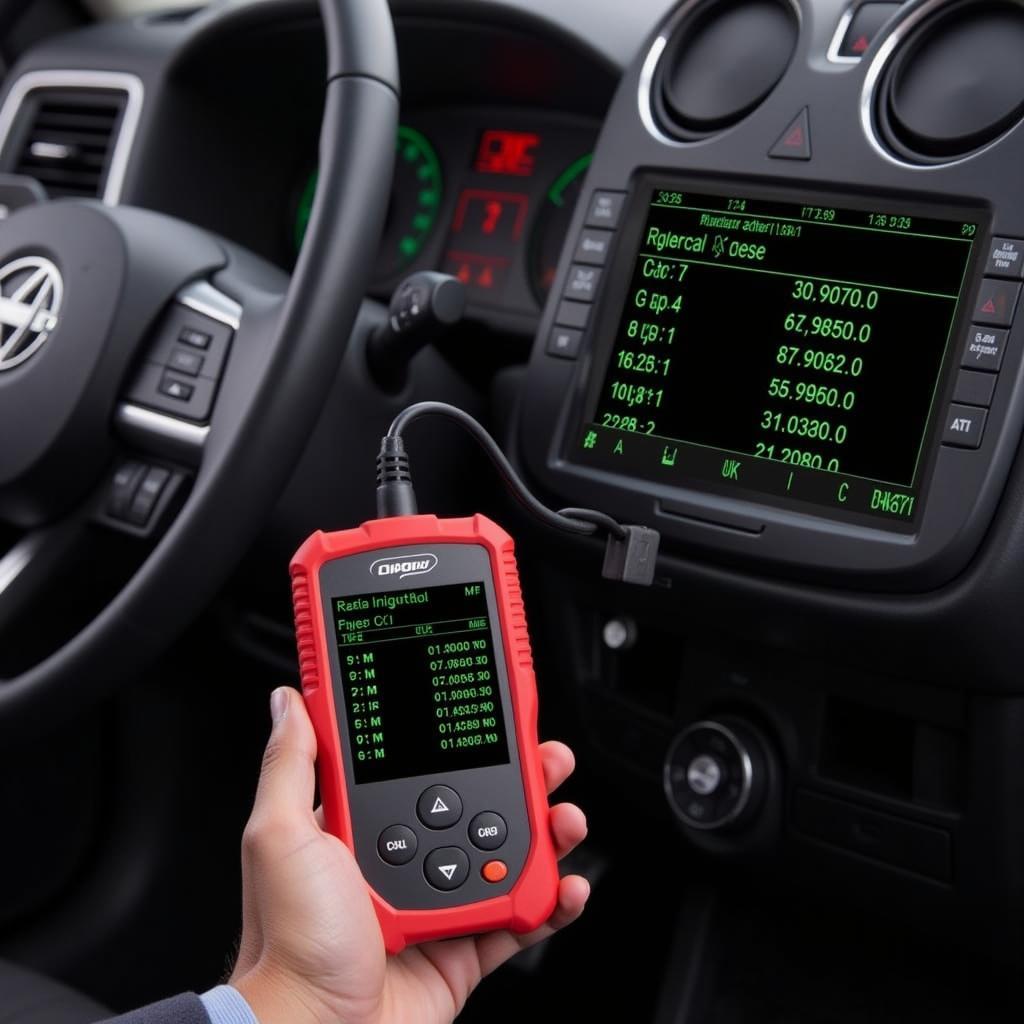As a car owner or mechanic, you know that a reliable diagnostic tool is essential for identifying and resolving vehicle issues. For GM vehicles, having the right diagnostic tool can mean the difference between a quick fix and hours of frustrating guesswork. This comprehensive guide delves into the world of Gm Diagnostic Tools, providing you with the knowledge to make informed decisions about the best options for your needs.
Understanding the Importance of GM Diagnostic Tools
Modern vehicles, especially those manufactured by General Motors, are complex machines with intricate electronic systems. When a problem arises, the days of simply relying on a mechanic’s intuition are long gone. GM diagnostic tools act as a direct line of communication with your vehicle’s computer system, allowing you to:
- Retrieve Diagnostic Trouble Codes (DTCs): These codes are your starting point for understanding what’s wrong with your vehicle. GM diagnostic tools can read and interpret these codes, giving you valuable insight into the potential source of the problem.
- View Live Data Streams: Want to know how your engine is performing in real-time? GM diagnostic tools can display live data from various sensors, letting you monitor parameters like engine RPM, coolant temperature, and oxygen sensor readings.
- Perform Actuator Tests: Suspect a faulty component? Many GM diagnostic tools allow you to initiate actuator tests, commanding components like solenoids, relays, and motors to activate. This helps pinpoint the source of electrical or mechanical issues.
- Program and Configure Modules: From key fobs to engine control modules, certain GM diagnostic tools offer the ability to program and configure replacement or remanufactured modules, ensuring they integrate seamlessly with your vehicle.
Types of GM Diagnostic Tools
The market offers a wide array of GM diagnostic tools, each with its own strengths and limitations. Understanding the different types available can help you choose the best fit for your specific needs and budget.
1. Handheld Scanners
Handheld scanners are compact, portable, and generally the most affordable option. They’re an excellent choice for DIY enthusiasts and car owners who want to perform basic diagnostics. However, they might not offer the advanced features and functionalities of higher-end options.
2. PC-Based Scan Tools
For professional mechanics and serious DIYers, PC-based scan tools offer unparalleled diagnostic power. These tools connect to your laptop or computer, providing a comprehensive software suite for in-depth analysis, data logging, and advanced programming capabilities.
3. Mobile Device-Based Tools
The rise of smartphones and tablets has led to the emergence of mobile device-based diagnostic tools. These tools use Bluetooth or Wi-Fi to communicate with your vehicle, offering a convenient and often affordable option for basic diagnostics and code reading.
 A mechanic using a GM diagnostic scanner on a car
A mechanic using a GM diagnostic scanner on a car
Choosing the Right GM Diagnostic Tool
With so many options available, selecting the right GM diagnostic tool can seem daunting. Consider the following factors to narrow down your choices:
- Your Skill Level: Are you a casual user or a seasoned professional? Choose a tool that aligns with your technical expertise and diagnostic needs.
- Vehicle Coverage: Ensure the tool you choose supports the specific make, model, and year of your GM vehicle. Some tools offer wider coverage than others, including support for multiple vehicle brands.
- Features and Functionality: Determine the specific features you require, such as live data streaming, bi-directional controls, special functions, and programming capabilities.
- Software Updates: Regular software updates are crucial for ensuring compatibility with the latest vehicle models and technologies. Choose a tool from a reputable manufacturer that provides ongoing software support.
OEM diagnostic tools partition
For the most comprehensive diagnostics and programming capabilities, consider OEM (Original Equipment Manufacturer) diagnostic tools. These tools are specifically designed for GM vehicles and offer unparalleled access to your vehicle’s systems.
While OEM tools were once primarily used by dealerships and specialized repair shops, advancements in technology and affordability have made them more accessible to independent mechanics and even car enthusiasts.
 GM diagnostic software interface on a laptop screen
GM diagnostic software interface on a laptop screen
Beyond Diagnostics: The Power of Programming
Many advanced GM diagnostic tools go beyond simple diagnostics, offering powerful programming capabilities. This can be particularly beneficial for:
- Key Fob Programming: Replace lost or damaged key fobs and program new ones with ease.
- Module Replacement: Seamlessly integrate replacement modules, such as engine control modules or transmission control modules.
- Software Updates: Keep your vehicle’s software up-to-date to ensure optimal performance and access to the latest features.
Conclusion
Investing in the right GM diagnostic tool is an investment in your vehicle’s health and your peace of mind. By understanding the different types available, considering your specific needs, and prioritizing features like software updates and programming capabilities, you can choose a tool that empowers you to diagnose and resolve issues effectively.
Need help finding the perfect GM diagnostic tool for your needs? Contact the experts at ScanToolUS today at +1 (641) 206-8880 or visit our office at 1615 S Laramie Ave, Cicero, IL 60804, USA. We’re here to help you keep your GM vehicle running smoothly for years to come!



Pingback: Understanding and Using Automotive Diagnostic Tools - Car Scan Tool